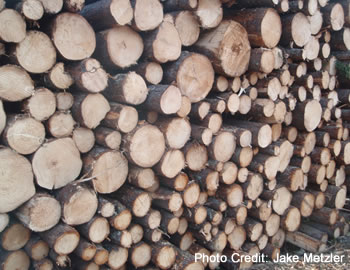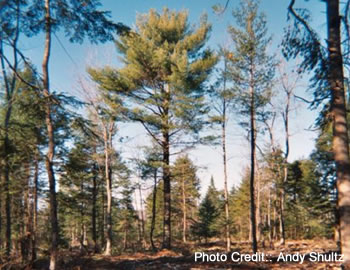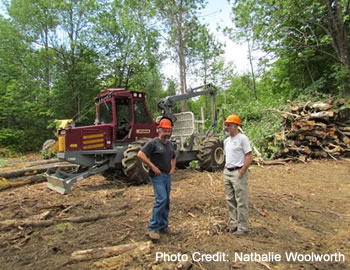Home → Your Woodland → Learn What You Can Do for Kennebec County's Woodlands → A Stewardship Storyline →What are the financial aspects of owning a woodland?
Your Woodland: A Stewardship Storyline
What are the financial aspects of owning a woodland?
Owning a woodland, like any investment, is a balance of expenses and benefits. Informed decisions today can protect your investment - and the benefits you enjoy - for the future. Your forester can help you decide what steps to take to increase the value of your forest while minimizing costs.
Can money really grow on trees?
Yes, figuratively speaking.Woodlands can provide timber value, which is market-dependent, and other non-timber forest products (e.g., mushrooms), as well as possible income from recreational leases, ecosystem ecosystemservices, and carbon markets. Depending on the size of your woodlot, it can provide a steady source of income with modest rates of return.
Is there a way to reduce my property taxes?
“Current use” property tax programs often lower your woodland tax burden while ensuring that your woodland will remain woodland for the foreseeable future. The program known as Tree Growth requires that you follow a written, basic management and Harvesting plan that must be updated at least once every ten years. The Open Space and Farmland programs are similar but with different requirements. Consider these options carefully before enrolling, as there are penalties for withdrawal.
Do I have to pay any special taxes when I harvest trees?
No. The primary tax to consider when Harvesting is income tax. Generally, income from selling timber can be treated as a capital gain, which has a lower tax rate than that of ordinary income. Your forester can help you establish a "basis" for you trees that may further reduce your income taxes when you harvest.
Are there assistance programs for woodland owners?
Government-sponsored “cost-share” programs can help cover the cost of hiring a licensed forester to write a Forest Management Plan and implement recommended activities. The Maine Forest Service’s WoodsWISE program is funded by the USDA Forest Service. The Natural Resources Conservation Service, a federal agency with local field offices, also offers a variety of programs that can help woodland owners. Check with the appropriate agency to find out more about availability of funds, eligibility, and other requirements.
Would you like to learn more?
Read a Northern Woodlands Magazine article on Growing Value in Your Woods
Read Maine stumpage price reports for your county.
To learn about sources of financial assistance for forest management planning, contact Andy Shultz, Landowner Outreach Forester for the Maine Forest Service.
Would you like to talk with a person about this stewardship step? Here are some partners who can help:
- Maine Forest Service
- Kennebec County Soil and Water Conservation District
- Maine Forest Products Council
- Maine State Implementation Committee of the Sustainable Forestry Initiative
- Small Woodland Owners Association of Maine
- Kennebec Land Trust
- Sebasticook Regional Land Trust
- Forest Society of Maine
- Maine Department of Agriculture, Food and Rural Resources


